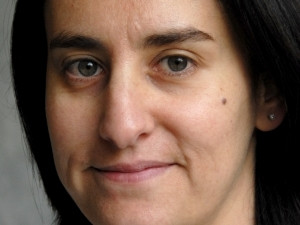
If SA is to harness the potential synonymous with technological progression, the country's ICT sector is going to need a strong regulator - something that is lacking today.
This is the shared sentiment of industry players taking part in a panel discussion on the role of regulation in broadband at the Southern Africa Telecommunications Networks and Applications Conference today, including representatives from Neotel, Cell C and Telkom.
Kicking off the debate, Luci Abrahams, director of the Link centre at the University of the Witwatersrand, said: "Strong is not powerful - and we have neither a strong, nor a powerful, regulator."
Abrahams says SA's ICT watchdog, the Independent Communications Authority of SA (ICASA), should be as strong as the major firms in the industry. "Nowhere in the world is a scenario in which you have a strong industry and a weak regulator a recipe for ubiquitous broadband.
"Ten years ago we weren't even talking about broadband and Telkom had miserable ADSL, but today vast modalities of broadband are available. From that base, the next 15 years will take at least some of us by surprise."
She says regulation underpins the successful channelling of technology and, while it cannot today be said of SA that the country is a network knowledge economy, it will become one, at least in the next century.
Strives and solutions
Dr Tracy Cohen, chief corporate services officer at Neotel and a former ICASA councillor, says ongoing flux in the sector - due to changes in leadership, laws and regulations - is eroding the efficacy of regulation.
As a result of this, says Cohen, processes remain unfinished and policies fragmented. "There are two processes in particular that stick out - spectrum allocation and universal service."
She says, while there are some wins to speak of when it comes to ICASA - such as the lowering of termination rates - something different needs to be done. "What we are doing is not working."
Cell C's head of regulatory affairs, Mothibi Ramusi, says SA's ICT sector needs innovative regulations. "When it comes to spectrum, the regulator needs to identify barriers and find a new way to facilitate broadband - and this is called collaboration."
Echoing Cell C chief Alan Knott-Craig's wholesale model notion, Ramusi says one of the "innovative options" ICASA should look at is open access models. "We are looking for a dynamic change of game plan, because continuing with the current format will mean challenges. Innovation, communication and interaction is needed.
"For me it is about partnerships. There is plenty of evidence of the benefits [industry players working together] can yield. Considering there is an issue with spectrum and more than 10 operators looking to tap into it, let's put it in a pool, open wholesale access and have competition at the level of service - rather than infrastructure."
Dr Richard Majoor, executive for corporate strategy at Telkom, says, where SA has suffered is that there is a common view of its broadband challenges. "If all you have is a hammer, everything looks like a nail. We need to take a fact-based approach and ask questions like 'is broadband affordable and what would constitute an affordable level?' and 'is SA's underserved?'."
He says only once the fundamental questions have been answered, will the SA be able to move beyond dialogue to implementation.
While ICASA's recently launched Cost to Communicate programme is a good start, Majoor says some dimensions are lacking. "There is an over-emphasis on price, while the investment and technology advancement side and other metrics are lacking."
As a start, he says, "SA would to well to conduct an annual state of industry report [in order to garner] all the correct metrics, agree on a common view and move forward with a fact-based footing."
Share